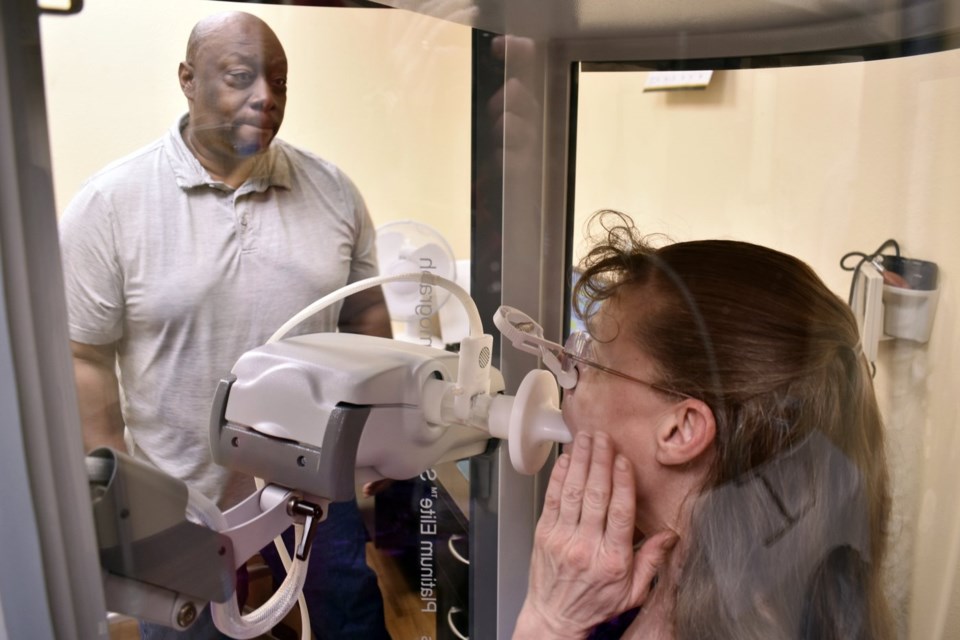BILLINGS, Mont. (AP) — An asbestos screening clinic in a small Montana town where thousands have been sickened by toxic dust from a nearby mine has been abruptly shuttered by authorities following a court order to seize the clinic’s assets to pay off .
The Lincoln County Sheriff’s Office closed on Wednesday the Center for Asbestos Related Disease in Libby, about 50 miles (80 kilometers) from the U.S.-Canada border. The town of about 3,000 people is near a mine that produced asbestos dust for decades, and the clinic has been at the forefront of efforts to help victims.
Courts in Montana have said to the pollution when it brought from the mine through town, and the railway separately faces numerous lawsuits from in Libby and surrounding communities.
But the Texas-based railway prevailed in a 2023 lawsuit alleging the clinic fraudulently made some patients eligible for government benefits when it knew they were not sick. The railway challenged the validity of over 2,000 diagnoses by the clinic and 337 were ruled false.
The railway brought the lawsuit on behalf of the federal government, which provides specialized Medicare services to Libby’s asbestos victims. BNSF was entitled to a share of the $6 million judgment against the clinic, and after adding in attorney fees, court costs and interest, the railway says it’s now owed $3.1 million.
“The judge determined the amount of damages to be repaid, and the process for recovery is set by law," BNSF spokesperson Kendall Kirkham Sloan said in a statement.
Clinic Executive Director Tracy McNew said the closure would have a broad impact on public health in the Libby area as fewer people are screened for asbestos-related health problems.
“CARD remains committed to its patients and the Libby community and will fight to reopen as soon as possible,” McNew said in a statement.
The clinic for more than 20 years has provided health screenings, monitoring and treatment of patients with problems caused by asbestos exposure. It declared bankruptcy after the judgment in the fraud case was handed down. It kept operating and didn’t pay the money under a settlement reached in bankruptcy court with the federal government that included BNSF.
CARD bankruptcy attorney James “Andy” Patten said the railway's attempts to collect on the fraud judgment violated the bankruptcy settlement, which was approved by a federal court.
Sloan declined to comment on the bankruptcy settlement.
Matthew Brown, The Associated Press




